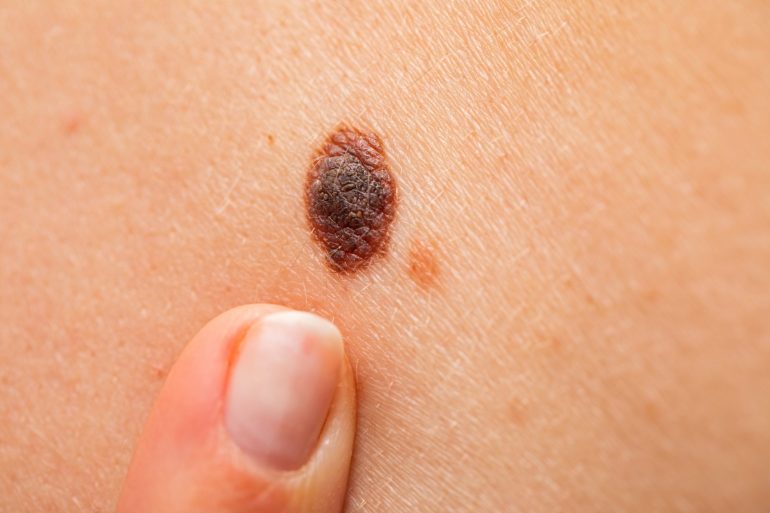Immunotherapy against dark skin cancer
Malignant melanoma, often called black skin cancer, is the most dangerous type of skin cancer. Treatment of advanced stage poses a challenge for medical professionals. Nevertheless, the survival rate of those affected has improved significantly over the past decade. This is mainly due to advances in immunotherapy.
However, according to a working group at the University Medical Center in Göttingen, about 40 percent of patients with malignant melanoma respond to immunotherapy. The team identified biomarkers that could be used to predict whether immunotherapy would work in a person. The research results were recently published in the journal “cancer Research” Presented.
Biomarkers to predict chances of medical success
For the first time, the research group examined the immune system’s natural killer cells in relation to their role in immunotherapy against skin cancer. The team was able to identify several biomarkers that could be used to predict how well immunotherapy would work in an individual. According to the researchers, natural killer cells (NK cells) have not yet been considered in the development of immunotherapy for melanoma. Participation can have a decisive advantage in the chances of success of therapy.
What do natural killer cells do?
As the working group explains in a press release on the research results, NK cells have cytotoxic properties and can kill diseased cells. Natural killer cells have the advantage over the T cells of the immune system that they do not need to be specifically stimulated for antigens first.
This makes NK cells a promising tool in the treatment of solid tumors. According to the researchers, there is currently no therapy that specifically targets NK cells. Its use is already being tested in some preclinical studies.
Disadvantages of currently available immunotherapies
The research team cautions that currently available immunotherapies are expensive and have significant side effects. The response rate is relatively low, at less than 40 percent. In the immunotherapy used, specifically cytotoxic T cells are activated against the tumor.
“To be able to better treat melanoma, it would be of decisive benefit if the tumor could be treated before it could predict whether the tumor would respond to therapy,” said study lead author Dr. Sabrina Cappello.
Better immunotherapies in prospect
“The results of the study may provide a dual benefit for cancer patients,” said Professor Dr. Ivan Bogesky from the study team. On the one hand, the probe can be used to predict response to T-cell-based immunotherapy already used in the clinic. On the other hand, the findings may help to develop and optimize NK cell-based therapies in the future, explains Prof. According to the working group, the research results form the basis for future personalized cancer therapy. (VB)
Author and source information
This text matches the requirements of medical specialist literature, medical guidelines and current studies and has been checked by medical professionals.
Author:
Diploma-Editor (FH) Volker Blasek
Source:
- Sabrina Cappello, Hsu-Min Sung, Christian Ikes, et al.: Protein signature of NK cell-mediated melanoma killing predicts response to immunotherapy; In: Cancer Research, 2021, DOI: 10.1158/0008-5472.CAN-21-0164., cancerres.aacrjournals.org
- University Medicine Göttingen: Against skin cancer with killer cells (Published: 01/28/2022), umg.eu
Important Articles:
This article is general advice only and should not be used for self-diagnosis or treatment. He cannot take the place of visiting the doctor.

Web guru. Amateur thinker. Unapologetic problem solver. Zombie expert. Hipster-friendly travel geek. Social mediaholic.





